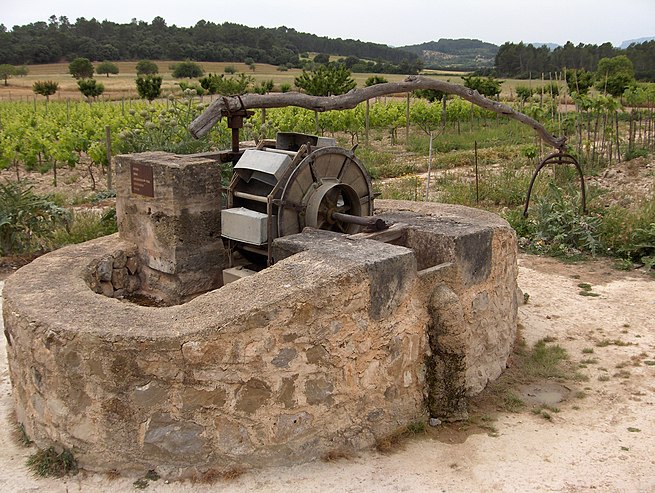-
Will (verb)
To wish, desire (something). 9th-18th c.
“Do what you will.”
-
Will (verb)
To wish or desire (that something happen); to intend (that). 9th-19th c.
-
Will (verb)
To habitually do (a given action). from 9th c.
-
Will (verb)
To choose to (do something), used to express intention but without any temporal connotations (+ bare infinitive). from 10th c.
-
Will (verb)
Used to express the future tense, sometimes with some implication of volition when used in the first person. Compare shall. from 10th c.
-
Will (verb)
To be able to, to have the capacity to. from 14th c.
“Unfortunately, only one of these gloves will actually fit over my hand.”
-
Will (verb)
To wish, desire. 9th–19th c.
-
Will (verb)
To instruct (that something be done) in one’s will. from 9th c.
-
Will (verb)
To try to make (something) happen by using one’s will (intention). from 10th c.
“All the fans were willing their team to win the game.”
-
Will (verb)
To bequeath (something) to someone in one’s will (legal document). from 15th c.
“He willed his stamp collection to the local museum.”
-
Will (noun)
One’s independent faculty of choice; the ability to be able to exercise one’s choice or intention. from 9th c.
“Of course, man’s will is often regulated by his reason.”
-
Will (noun)
One’s intention or decision; someone’s orders or commands. from 9th c.
“Eventually I submitted to my parents’ will.”
-
Will (noun)
The act of choosing to do something; a person’s conscious intent or volition. from 10th c.
“Most creatures have a will to live.”
-
Will (noun)
A formal declaration of one’s intent concerning the disposal of one’s property and holdings after death; the legal document stating such wishes. from 14th c.
-
Will (noun)
That which is desired; one’s wish. from 10th c.
-
Will (noun)
Desire, longing. (Now generally merged with later senses.) from 9th c.
“He felt a great will to make a pilgrimage to the Holy Land.”
-
Well (adverb)
Accurately, competently, satisfactorily.
“He does his job well.”
-
Well (adverb)
Completely, fully.
“a well done steak”
“We’re well beat now.”
-
Well (adverb)
To a significant degree.
“That author is well known.”
-
Well (adverb)
Very (as a general-purpose intensifier).
-
Well (adverb)
In a desirable manner; so as one could wish; satisfactorily; favourably; advantageously.
-
Well (adjective)
In good health.
“I had been sick, but now I’m well.”
-
Well (adjective)
Good, content.
““How are you?” — “I’m well, thank you!””
-
Well (adjective)
Prudent; good; well-advised.
-
Well (interjection)
Used to acknowledge a statement or situation.
““The car is broken.” “Well, we could walk to the movies instead.””
““I didn’t like the music.” “Well, I thought it was good.””
““I forgot to pack the tent! Well, I guess we’re sleeping under the stars tonight.””
-
Well (interjection)
An exclamation of surprise, often doubled or tripled.
“Well, well, well, what do we have here?”
-
Well (interjection)
An exclamation of indignance.
“Well! There was no need to say that in front of my mother!”
-
Well (interjection)
Used in speech to express the overcoming of reluctance to say something.
“It was a bit… well… too loud.”
-
Well (interjection)
Used in speech to fill gaps; filled pause.
““So what have you been doing?” “Well, we went for a picnic, and then it started raining so we came home early.””
-
Well (interjection)
Used as a greeting
“Well lads. How’s things?”
-
Well (noun)
A hole sunk into the ground as a source of water, oil, natural gas or other fluids.
-
Well (noun)
A place where a liquid such as water surfaces naturally; a spring.
-
Well (noun)
A small depression suitable for holding liquid or other objects.
“Make a well in the dough mixture and pour in the milk.”
-
Well (noun)
A source of supply.
-
Well (noun)
A vertical, cylindrical trunk in a ship, reaching down to the lowest part of the hull, through which the bilge pumps operate.
-
Well (noun)
The cockpit of a sailboat.
-
Well (noun)
A compartment in the middle of the hold of a fishing vessel, made tight at the sides, but having holes perforated in the bottom to let in water to keep fish alive while they are transported to market.
-
Well (noun)
A vertical passage in the stern into which an auxiliary screw propeller may be drawn up out of the water.
-
Well (noun)
A hole or excavation in the earth, in mining, from which run branches or galleries.
-
Well (noun)
An opening through the floors of a building, as for a staircase or an elevator; a wellhole.
-
Well (noun)
The open space between the bench and the counsel tables in a courtroom.
-
Well (noun)
The lower part of a furnace, into which the metal falls.
-
Well (noun)
A well drink.
“They’re having a special tonight: $1 wells.”
-
Well (noun)
The playfield of Tetris and similar video games, into which the blocks fall.
-
Well (noun)
In a microtiter plate, each of the small equal circular or square sections which serve as test tubes.
-
Well (verb)
To issue forth, as water from the earth; to flow; to spring.
-
Well (verb)
To have something seep out of the surface.
“Her eyes welled with tears.”

